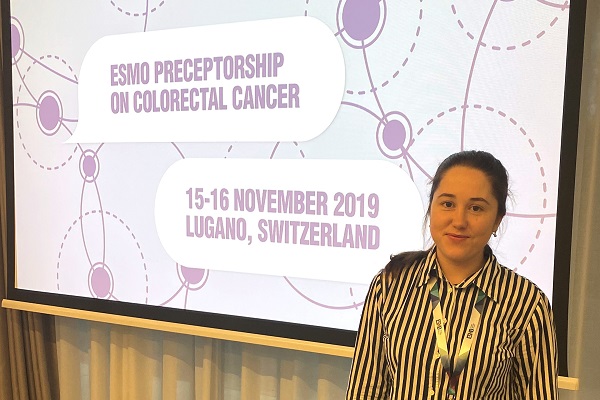On the 15-16 November in Lugano, Switzerland a scientific conference on multidisciplinary management of the colorectal cancer, standards of care and future perspectives was held.

The event involved leading European specialists in the fields of radiological diagnostics, chemotherapeutists, radiologists, and surgeons. As part of the grant for young doctors from Europe up to the age of 40 there was involved in the conference a group of them, including a doctor-intern at the Department of Oncology of the second year of study, Tiunova Inessa.
In the section of early colorectal cancer the optimal criteria of histological specimen for pathologist's examination were investigated. Removing 12 lymph nodes, the need to determine the paraneural and lymphatic tumor infiltration are very important steps to establish a reliable diagnosis. Chemotherapy should be performed for localized colon cancer in high-risk groups of the patients.
Advantages and disadvantages of open, laparoscopic and robot-assisted surgery have not been proven yet. Study of microsatellite instability studies, RAS and BRAF mutations in Europe are the standard of diagnosis in the case of metastatic colorectal cancer for determining the most optimal combination of chemotherapy and / or immunotherapy regimens. In oligometastases in the lungs and liver, non-adjuvant therapy should be performed to reduce the number and size of metastatic foci, with subsequent removal of metastases. For elderly patients and patients with concomitant pathology the number and doses of drugs should be adjusted personally.



